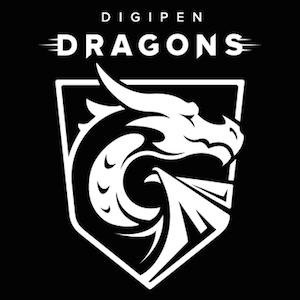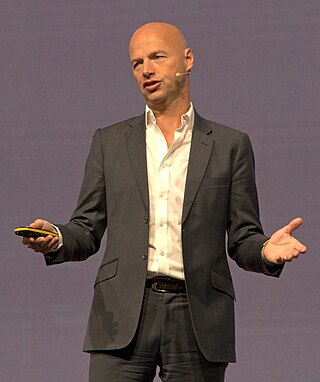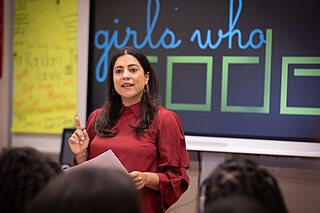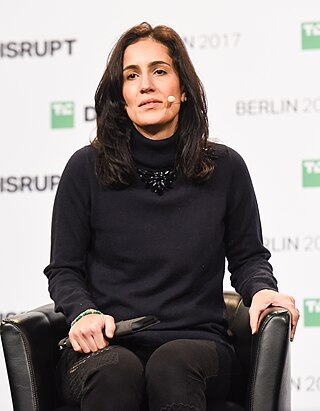
DigiPen Institute of Technology is a private for-profit university in Redmond, Washington. It also has campuses in Singapore and Bilbao, Spain. DigiPen offers bachelor's and master's degree programs. It also offers summer programs for students in grades K-12, online courses, and year-long high school programs.

Y Combinator Management, LLC (YC) is an American technology startup accelerator launched in March 2005 which has been used to launch more than 4,000 companies. The accelerator program started in Boston and Mountain View, expanded to San Francisco in 2019, and was entirely online during the COVID-19 pandemic. Companies started via Y Combinator include Airbnb, Coinbase, Cruise, DoorDash, Dropbox, Instacart, Reddit, Stripe, and Twitch.

A hackathon is an event where people engage in rapid and collaborative engineering over a relatively short period of time such as 24 or 48 hours. They are often run using agile software development practices, such as sprint-like design wherein computer programmers and others involved in software development, including graphic designers, interface designers, product managers, project managers, domain experts, and others collaborate intensively on engineering projects, such as software engineering.

Science, technology, engineering, and mathematics (STEM) is an umbrella term used to group together the distinct but related technical disciplines of science, technology, engineering, and mathematics. The term is typically used in the context of education policy or curriculum choices in schools. It has implications for workforce development, national security concerns, and immigration policy, with regard to admitting foreign students and tech workers.

Udacity, Inc. is an American for-profit educational organization founded by Sebastian Thrun, David Stavens, and Mike Sokolsky offering massive open online courses.

Codecademy is an American online interactive platform that offers free coding classes in 12 different programming languages including Python, Java, Go, JavaScript, Ruby, SQL, C++, C#, and Swift, as well as markup languages HTML and CSS. The site also offers a paid "Pro" option that gives users access to personalized learning plans, quizzes, and realistic projects.
Dev Bootcamp was an immersive 19-week coding bootcamp founded by Shereef Bishay, Jesse Farmer, and Dave Hoover in February 2012. It is designed to make graduates job-ready by the end of the program. Dev Bootcamp was headquartered in San Francisco, California, with additional locations Seattle, Chicago, New York City, Washington, D.C., San Diego, and Austin. It was acquired by for-profit education company Kaplan, Inc in 2014. Dev Bootcamp closed in 2017.
CodeDay is a non-profit organization which promotes STEM education for high school and college students.
Treehouse or (Teamtreehouse) is an online technology school that offers beginner to advanced courses in web design, web development, mobile development and game development. Its courses are aimed at beginners looking to learn computer coding skills for a career in the tech industry.
CodeHS is an interactive online learning platform offering computer science and programming instruction for schools and individual learners. CodeHS is focused on spreading access to and knowledge of computer science by offering online instructional materials supported by remote tutors. In the introductory learning module, students on the site practice computer science concepts and programming skills by giving commands to a dog named Karel. In the most popular course offered, which is similar to the original Karel programming language developed by Richard E. Pattis, Karel the dog must complete various tasks by moving around a grid world, and putting down and picking up tennis balls using only simple commands. Later learning modules teach more advanced concepts using languages like JavaScript, Java, and HTML.
General Assembly is an American-headquartered private, for-profit education organization founded by CEO Jake Schwartz, Adam Pritzker, Matthew Brimer, and Brad Hargreaves in early 2011 and purchased by The Adecco Group in 2018. It maintains campuses in various countries throughout the world to teach entrepreneurs and business professionals practical technology skills. It provides courses in mobile and software engineering, data science, product management, and other digital technology–related courses.
Ali Partovi is an Iranian-American entrepreneur and angel investor. He is best known as a co-founder of Code.org, iLike, LinkExchange, an early advisor at Dropbox, and an early promoter of bid-based search advertising. Partovi currently serves on the board of directors at FoodCorps. He is currently the CEO of Neo, a mentorship community and venture fund he established in 2017.

Girls Who Code is an international nonprofit organization, aiming to support and increase the number of women in computer science. Among its programs are a summer immersion program, a specialized campus program, after-school clubs, a college club, College Loops, and a series of books. The organization is based in New York and has programs in all fifty states Canada, India, and the United Kingdom. In the decade since its inception it has over 500,000 alumni.

Kimberly Bryant is an American electrical engineer who worked in the biotechnology field at Genentech, Novartis Vaccines, Diagnostics, and Merck. In 2011, Bryant founded Black Girls Code, a nonprofit organization that focuses on providing technology and computer programming education to African-American girls. After founding Black Girls Code, Bryant was listed as one of the "25 Most Influential African-Americans In Technology" by Business Insider.
Pluralsight, LLC is an American privately held online education company that offers a variety of video training courses for software developers, IT administrators, and creative professionals through its website. Founded in 2004 by Aaron Skonnard, Keith Brown, Fritz Onion, and Bill Williams, the company has its headquarters in Farmington, Utah. As of July 2018, it uses more than 1,400 subject-matter experts as authors, and offers more than 7,000 courses in its catalog. Since first moving its courses online in 2007, the company has expanded, developing a full enterprise platform, and adding skills assessment modules.
Technology Education and Literacy in Schools (TEALS) is a program that pairs high schools with software engineers who serve as part-time computer science teachers.
CodeCombat is an educational video game for learning software programming concepts and languages. This game is recommended for students ages 9–16. Students learn to type coding languages like JavaScript, Python, HTML and CoffeeScript, as well as learning the fundamentals of computer science. CodeCombat has 11 units - three game development units, two web development units, and six computer science units. The first unit, Computer Science 1, is free to all students and teachers. In 2019, CodeCombat was recognized by the College Board as an endorsed provider of curriculum and professional development for AP Computer Science Principles.
freeCodeCamp is a non-profit organization that consists of an interactive learning web platform, an online community forum, chat rooms, online publications and local organizations that intend to make learning software development accessible to anyone.

Avid Larizadeh-Duggan OBE is an Iranian-French-American entrepreneur and venture capitalist. She is a managing director at Ontario Teachers’ Pension Plan Innovation Platform, EMEA and is a non executive director of Barclays Bank UK.
Make School is a private for-profit computer science college in San Francisco, California. Located in the Union Square neighborhood, Make School offers a Bachelor’s of Science degree in Applied Computer Science.









